Eugénio Oliveira
Learning Word Embeddings from the Portuguese Twitter Stream: A Study of some Practical Aspects
Sep 04, 2017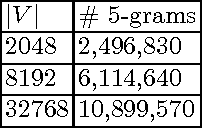
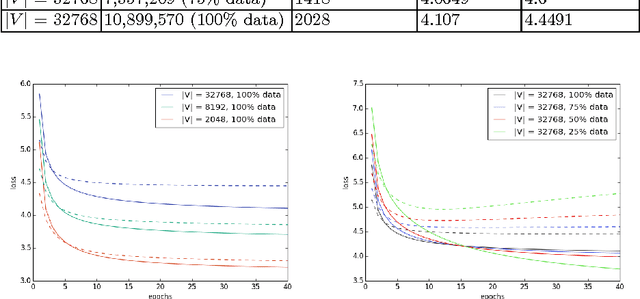
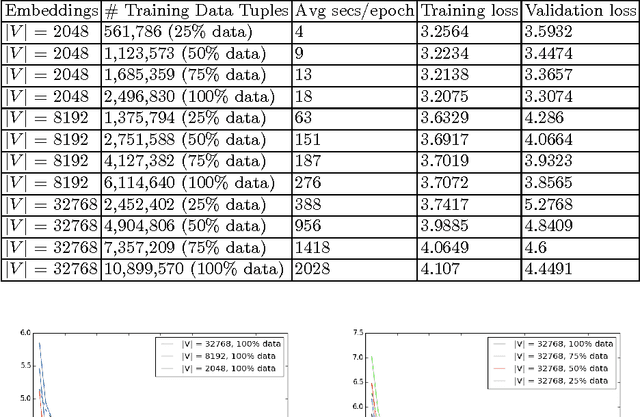
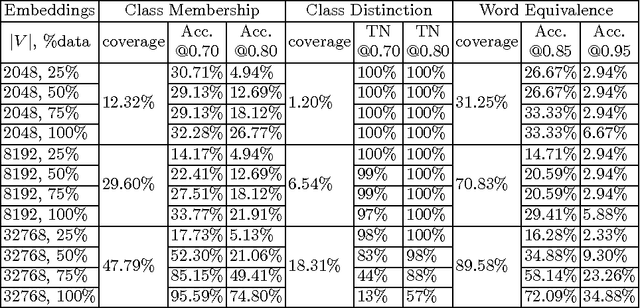
Abstract:This paper describes a preliminary study for producing and distributing a large-scale database of embeddings from the Portuguese Twitter stream. We start by experimenting with a relatively small sample and focusing on three challenges: volume of training data, vocabulary size and intrinsic evaluation metrics. Using a single GPU, we were able to scale up vocabulary size from 2048 words embedded and 500K training examples to 32768 words over 10M training examples while keeping a stable validation loss and approximately linear trend on training time per epoch. We also observed that using less than 50\% of the available training examples for each vocabulary size might result in overfitting. Results on intrinsic evaluation show promising performance for a vocabulary size of 32768 words. Nevertheless, intrinsic evaluation metrics suffer from over-sensitivity to their corresponding cosine similarity thresholds, indicating that a wider range of metrics need to be developed to track progress.
FEUP at SemEval-2017 Task 5: Predicting Sentiment Polarity and Intensity with Financial Word Embeddings
Apr 17, 2017
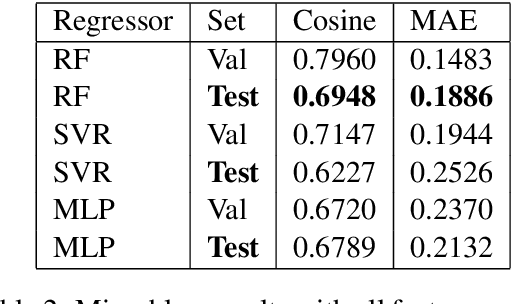
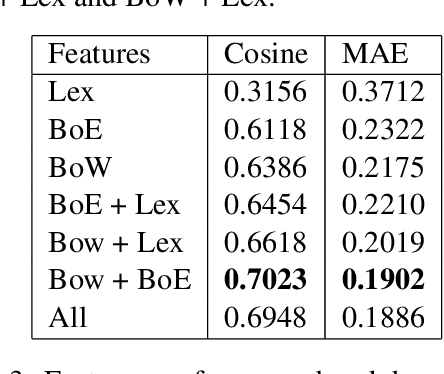
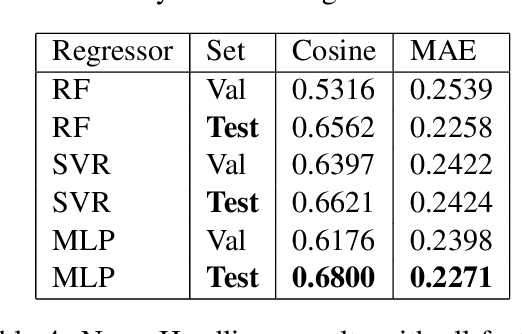
Abstract:This paper presents the approach developed at the Faculty of Engineering of University of Porto, to participate in SemEval 2017, Task 5: Fine-grained Sentiment Analysis on Financial Microblogs and News. The task consisted in predicting a real continuous variable from -1.0 to +1.0 representing the polarity and intensity of sentiment concerning companies/stocks mentioned in short texts. We modeled the task as a regression analysis problem and combined traditional techniques such as pre-processing short texts, bag-of-words representations and lexical-based features with enhanced financial specific bag-of-embeddings. We used an external collection of tweets and news headlines mentioning companies/stocks from S\&P 500 to create financial word embeddings which are able to capture domain-specific syntactic and semantic similarities. The resulting approach obtained a cosine similarity score of 0.69 in sub-task 5.1 - Microblogs and 0.68 in sub-task 5.2 - News Headlines.
 Add to Chrome
Add to Chrome Add to Firefox
Add to Firefox Add to Edge
Add to Edge